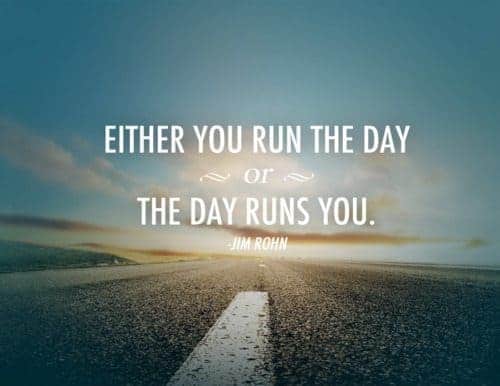How To Build Your Confidence No Matter What You’re Doing
Learn how to be confident in yourself so you can push yourself towards your goals.
We all have tasks that seem daunting when you think about them.
Some are of minor consequence, like learning how to plant a garden.
Others have a larger impact on our lives, such as hunting for a better-paying job.
How we view and approach tasks is key to how we feel about doing them.
It matters how much confidence we have in ourselves during the process – if we are likely to succeed.
Here’s how to be confident and keep yourself going, no matter what tasks lay ahead.
And when you’re done, you can read more on building confidence in conversations with others.
How To Be Confident No Matter What You’re Doing
1. Think about what you’re doing as a challenge NOT a chore.
When you think of an activity as an adventure, you’ll be hooked from the start.
You won’t be as worried about making mistakes or failing in the long run.
Your spirit will always be curious and interested in what you’re learning.
Think about activities as a drudge and you’re likely to keep putting them off or resent doing them.
I have two friends who are at their happiest learning new things.
One earned a Masters degree in social work, then a doctorate, had her own TV cable interview show, started horseback riding, learned encaustic painting, and danced tango in the second half of her life.
Then she wrote a novel (about to be published) and is now studying the art of screenwriting.
She knew nothing about any of these activities before beginning them.
But her attitude of having fun and her passion for learning carried her through to success.
My other friend is an artist, glass blower, hydroponic gardener, inventor, and even made her own shoes from scratch.
She also creates handmade doggie diapers for her incontinent dog.
Give her a challenge and she’ll run with it.
Her confidence comes from enjoying starting off knowing nothing about a subject – then ending up knowing A LOT.
Build your confidence by thinking of tasks as adventures.
2. Confidence is bolstered by competence.
Confidence grows from competence – which grows from confidence in an upward spiral.
You’ll never feel confident unless you take a chance and learn how to do new things.
Some people expect to have confidence without ever trying unfamiliar endeavors or doing anything slightly different.
Everything seems too hard.
They want to have all the answers at the get-go.
Think of all the achievements in your life and how much you know now that you didn’t before you started down the road to success.
For example, my husband and I live in Sarasota, Florida that got whammed by Hurricane Irma. We had to learn how to put up our storm shutters.
Looking at them sitting in our garage, I couldn’t fathom how we’d manage—so many large and small pieces to fit together as quickly as we could.
But once we figured out how to do one thing, we started to think that we could manage putting them all up.
That very first a-ha moment was key to convincing ourselves that we might have the shutters up before Irma blew through here.
3. Focus on what you’ve done, NOT what you didn’t or have yet to do.
Most people seem to have the wrong perspective on how to move forward on tasks.
First, they keep looking back to what they did wrong or didn’t do so well.
As an author, I get this.
I’m often tempted to stop what I’m writing and review or correct what’s already on the page.
But doing so breaks momentum and keeps me focused on my mistakes.
I’ll find one, then another, and another.
Soon I’m hung up on them.
I feel more confident by staying in the moment and finding pleasure in the writing process.
Second, people have a bad habit of looking at what they have yet to do.
When you’re writing the introduction to a book, it’s easy to get put off by the 10 chapters ahead of you.
So I don’t think about them.
I tell myself how pleased I am that I’ve started another book, knowing that it will get written as long as I keep tapping my computer keys.
Looking ahead and thinking about all you have to do or learn in any experience will likely generate anxiety; whereas staying in the present keeps you grounded and engaged.
My confidence comes from knowing that this process works.
4. Chunk down goals and feel proud of every tiny baby step forward.
As a therapist, I often hear clients complain that they’re overwhelmed about trying new things and facing big tasks.
Many of my clients are women in abusive relationships they’d like to leave.
But they keep looking at and talking about how hard it will be to get out permanently: where will they live, how much the divorce will cost, how the kids will fare, how will they support themselves, etc.
These are important questions.
But wanting the answers to all of them immediately only generates anxiety.
It also wipes out the tiniest bit of confidence these women have that they can make a life on their own.
So I help them chunk down their journey forward into small, doable tasks.
Moreover, I encourage them to feel proud about every step they take along the way—every call to a potential lawyer or landlord, every time they solve a problem rather than let it overwhelm them, every time they face a fear rather than run from it.
Their tendency is to say that they should have left their husband or partner years ago, rather than feeling proud that they’re doing it now.
Or they’ll say that something wasn’t hard to do, so why should they feel proud of it.
Confidence comes from knowing you’re up to the task and won’t quit, registering that you’ve done something—or many things—well thus far.
You can’t build your confidence if you minimize what you’ve accomplished.
Tiny steps count as much as big ones.
Tiny steps make the big steps happen.
It’s why they say successful people always make their beds in the morning.
It’s a small accomplishment to get the day started right.
So, start small.
Read a few “love yourself” quotes.
Do a puzzle.
Never let a small accomplishment go by without praising yourself to the hilt.
5. Ask for help when you need it.
Too many people believe that they’ll only feel good about achievement if they do it alone.
But often, tasks are too big or complicated to take on by ourselves.
Sometimes, we stop doing them because they stump or overwhelm us.
Build your confidence by doing what you can and comfortably asking for help when it’s needed.
Here’s an example.
I was applying for social security retirement benefits and got bogged down by conflicting information I was receiving.
I was also unable to thoroughly understand most of the financial questions.
I had little faith that I was going to be able to finish the application.
Hence, I would not receive the benefits I was due.
So I called someone who’s a wiz with finances and forms to walk me through the process.
I had to laugh each time he was faced with a question he couldn’t answer right off the bat.
This made me feel as if I hadn’t been doing such a bad job on my own after all.
I actually felt more confident in myself seeing his confusion.
It’s important that we’re not only confident that we have what it takes to achieve, but that we know when we need help.
It’s not better to be independent than dependent—or vice versa.
The goal is to know when you need to seek help and when you don’t.
This generates self-trust that increases confidence.
While you’re out there taking on challenges, remember that your best ally is the voice inside you that’s there cheering you on every step of the way.
I hope the above tips on how to be confident will help you believe in yourself more and keep going towards your goals.
Do you have any other tips to share?
Let us know in the comment section below.











